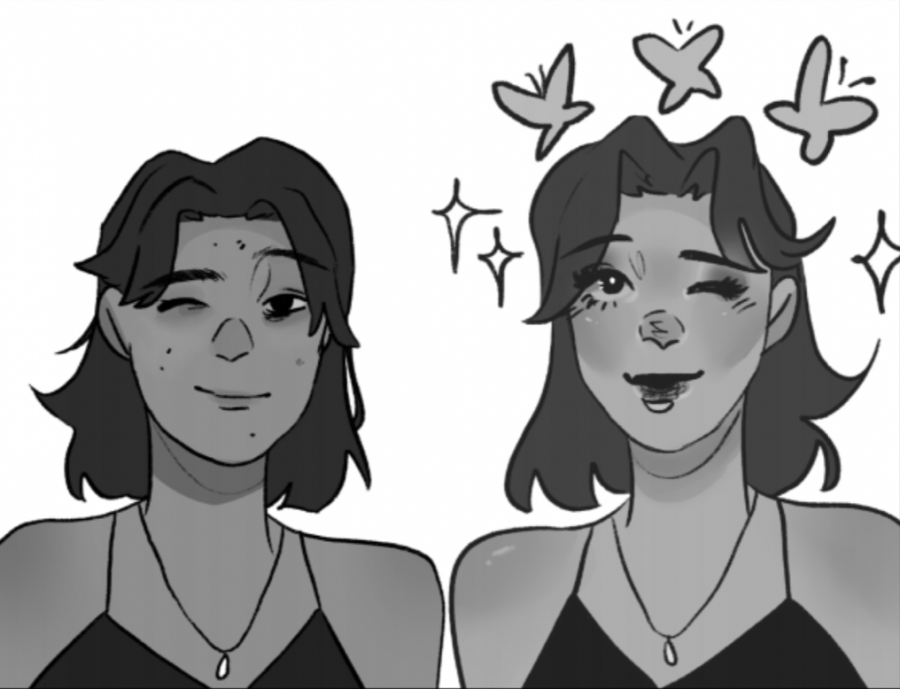A&E: Face filters can cause misperceptions of beauty
Some students believe that using beauty filters too often can lower self-esteem and lead users to develop more insecurities.
Snapchat filters, like the dog and flower crown, have been around for many years, but with Instagram’s adoption of a stories feature, face-distorting filters are growing in popularity. Oftentimes, these filters change a user’s face to be “desirable” to the point that the face is unrecognizable.
Senior Caeshia Suwitra believes that some Instagram filters are creative and have a cute effect. But with filters that are used on a person’s face, she is hesitant.
“I don’t really use the face filters, but the ones that distort your face to make your eyes plus lips bigger, nose smaller and skin smoother definitely make one feel more insecure, and it adds to societal beauty standards,” Suwitra said.
From Suwitra’s view, people can use whatever filters they prefer, but sometimes filters can have a bigger impact on those who cannot see the realities of the face behind the filter.
“Distorting your body or appearance on actual social media posts in a way where a filter isn’t obvious is the real issue since it sets up a false representation of what you look like,” Suwitra said.
Senior Kristin Manacmul feels that filters are more fun than deceptive.
“Using filters to take photos of things other than people are harmless,” Manacmul said. “It’s just used to make a photo look more ‘aesthetic,’ or to heal specific details of it.”
Similar to Manacmul, senior Leslie Villa believes filters can make people feel better about themselves in the moment, providing small touches to enhance their appearance.
“I think it’s okay to make filters a certain way because it can give you a bit of confidence in the moment,” Villa said. “But filters should be made to enhance your features not change them a lot.”
Like Villa, Manacmul does not see harm in using filters for objects, but agrees with Suwitra regarding the face-specific filters.
“But more often with selfies, I feel like filters are either used just to have fun, or to morph the face into something that looks ‘better,’” Manacmul said. “I prefer to avoid filters when taking photos of myself.”
Even though face filters can be used for fun, Manacmul said that self-esteem issues can arise if face-specific filters are used too often.
“When used too much, filters can make people feel worse about themselves,” Manacmul said. “By priding themselves in an image of themselves that is not real and often too far-fetched, (the face filters) will likely allow them to dislike themselves more.”
Villa also thinks that using filters too often can negatively impact self-esteem, especially in younger individuals.
“I don’t think it’s good because it can give younger teens a bad representation of how you should look,” Villa said. “It can lead to younger people feeling insecure because they feel they need to fit a certain appearance standard.”
Regardless of the changes a filter can make, Manacmul pointed out that it is truly all on the person to use the filter or not.
“It’s really based on whether the user is able to use them wisely,” Manacmul said. “But in some cases, filters are made to morph someone’s face to an unbelievable amount, and that fake reality can be detrimental to a person’s own personal opinion of themselves.”


